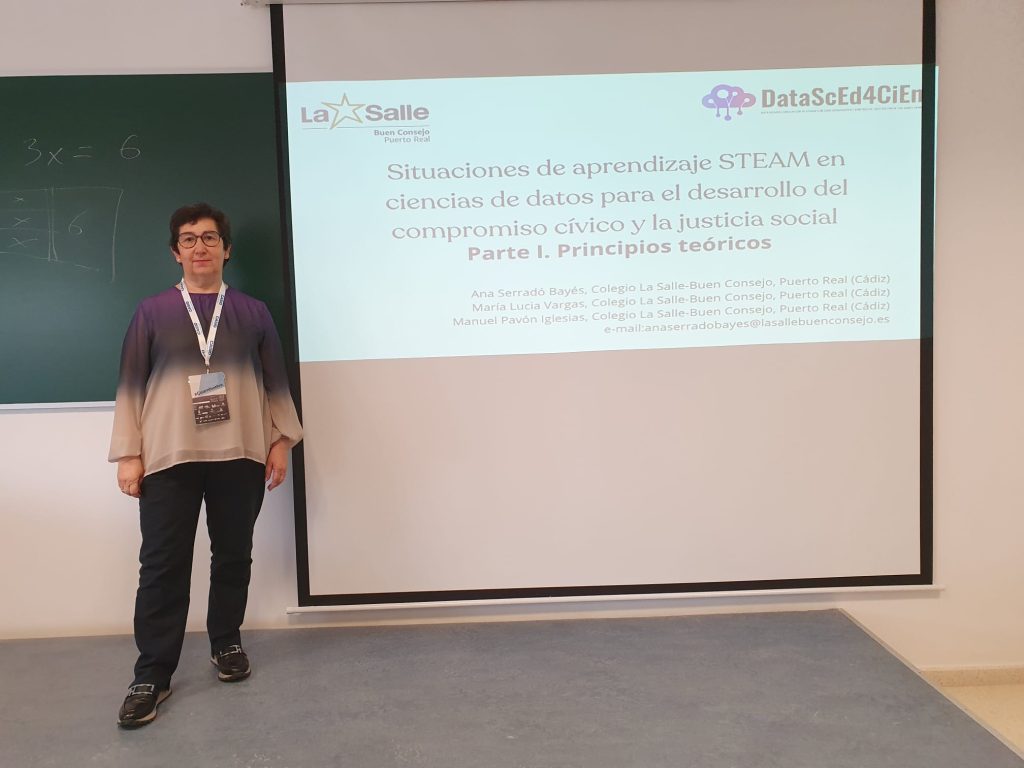The presentation titled “STEAM Learning Situations in Data Science for the Development of Civic Engagement and Social Justice” was delivered at the 19th Congress on the Teaching and Learning of Mathematics, held under the theme “Mathematics and Multiculturalism: A Dynamic Approach.”
The work was presented by Ana Serradó Bayés, María Lucía Vargas, and Manuel Pavón Iglesias from Colegio La Salle–Buen Consejo in Puerto Real, Cádiz, Spain. The study forms part of the Erasmus+ project “Data Science Education in STEAM for Civic Engagement and Social Justice from the Early Years (DataScEd4CiEn)”, which runs from December 2023 to June 2025.
This European initiative aims to promote data science literacy among students aged nine to fifteen by developing and implementing interdisciplinary STEAM learning experiences that foster critical thinking, creativity, and civic responsibility. By integrating science, technology, engineering, arts, and mathematics, the project encourages young learners to use data as a tool to understand and address real-world challenges such as climate change, environmental sustainability, and social justice.
In this study, the authors designed and implemented the learning scenario “Design Thinking. Drought, isn’t it?” in bilingual Biology–Geology and Mathematics classes with secondary school students. Using the Design Thinking methodology, students explored a local environmental problem—water scarcity—through data-driven inquiry. They learned how to formulate and refine research questions using authentic climate data from sources such as Copernicus, AEMET, and Meteostat, and to apply data visualization, statistical analysis, and even machine learning algorithms to identify patterns and predict drought conditions. They then collaborated to design a three-dimensional prototype of a rainwater collection system using TinkerCAD, linking data analysis to tangible solutions for their school community.
Throughout the process, students developed both technical and civic competencies such as curiosity, resilience, critical thinking, empathy, and collaboration. One student insightfully noted that the consequences of drought extend far beyond environmental impact, affecting education, equality, and access to opportunity. This reflection captures the project’s core purpose: to use data science education as a pathway to social awareness and civic engagement.
By combining data science, STEAM education, and social justice, this initiative demonstrates how schools can empower young people to become informed and responsible citizens who interpret data critically and take action for a more sustainable and equitable world.
This presentation was part of the dissemination activities of the Erasmus+ project DataScEd4CiEn – Data Science Education in STEAM for Civic Engagement and Social Justice, and was shared within the framework of the 19th Congress on the Teaching and Learning of Mathematics, under the theme Mathematics and Multiculturalism: A Dynamic Approach.

